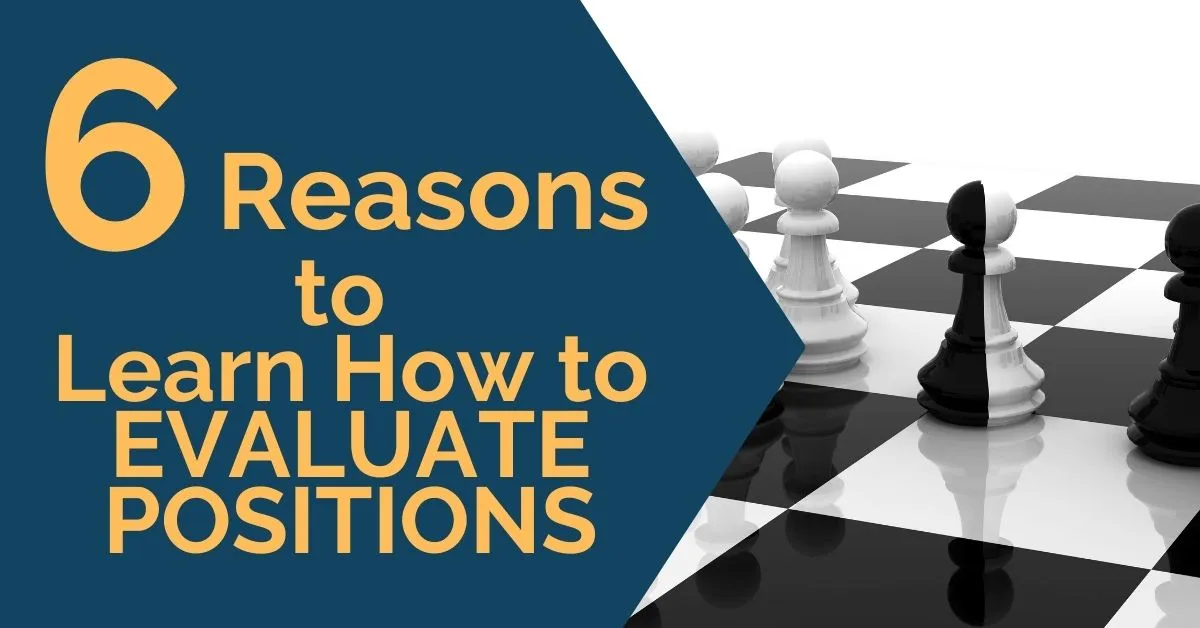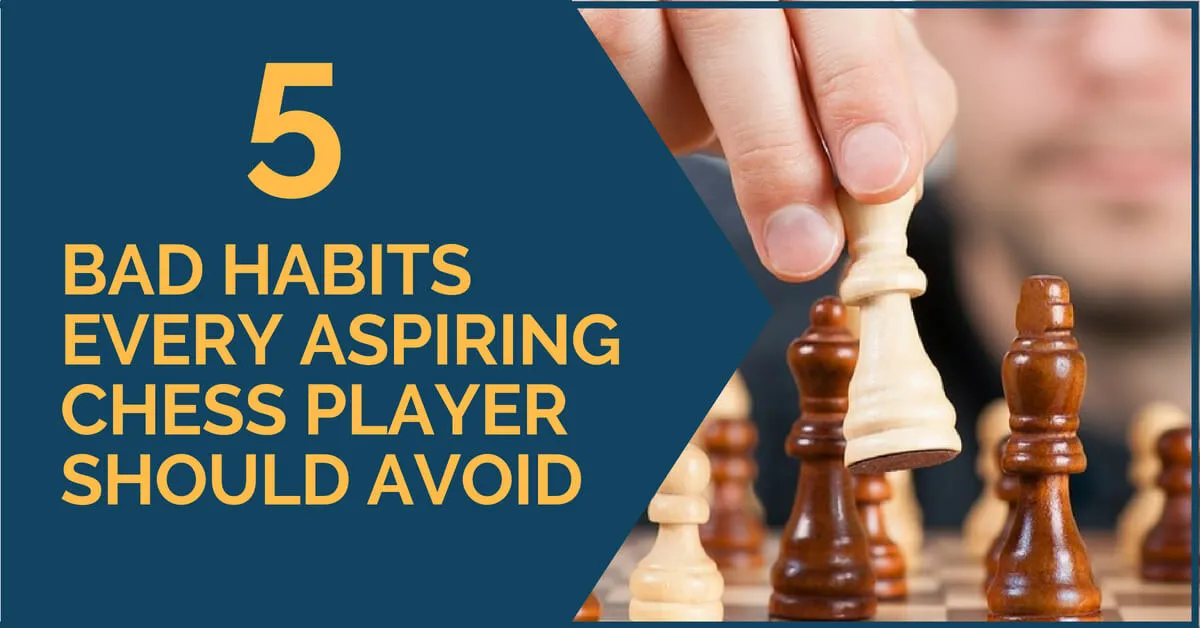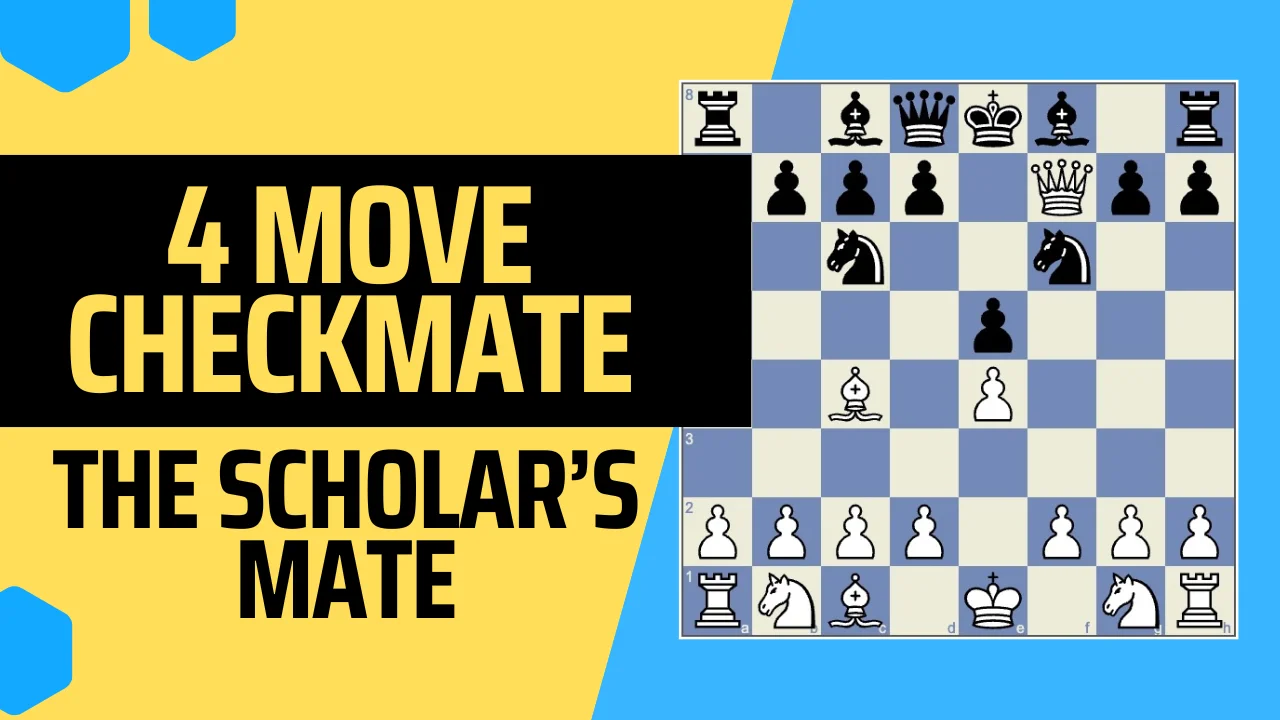Evaluate Positions: 6 Reasons to Learn How to Do It

Evaluate Positions: If you have been playing chess for a while, you are probably familiar with the terms “evaluation” or “assessment” of the position. All variations in chess books and magazines end with an evaluation and you have surely heard players ending their lines with words like “white is slightly better” or “black is clearly better” or “this side has a decisive advantage”. Things may seem fairly simple when the evaluation is given to you by someone else, but it isn’t that easy in practice when you will have to do the same in your games, for example. Evaluating a position correctly is an important skill for a chess player, for a number of reasons.
1. Evaluate Positions: Understanding the Position
First of all, a correct evaluation helps you understand the position. In the process of evaluation, you will have to consider many factors of the position such as material, king safety, pawn structure, weaknesses, piece activity, and so on. Understanding the advantages and disadvantages of your position will make things clearer for you and you’ll know what to do next.
2. Coming up with a Good Plan
Continuing the idea above, knowing exactly what you need to play for will help you come up with a suitable plan for your position. Each position is different and needs to be treated accordingly. Once you have assessed the position, you will have important indicators that will guide you through the rest of the game.
For example, if your opponent has a weak king, then you can start thinking about starting an attack. This will also tell you that you don’t want to trade queens. But, you want to keep pieces in order to put your opponent under pressure.
3. Evaluate Positions: Understanding What Your Opponent Wants
Assessing the position will not only tell you what you have to do. But, also, what your opponent has in mind. After the evaluation, you will come up with the good and the bad of your position. Your rival will, of course, try to exploit the bad, so you’ll know what to watch out for. If we take the same example as above, you know that your opponent will be trying to force trades and it will be easier for you to find his/her candidate moves.
4. Understanding Where You Stand
At the end of the assessment process, you should come up with an overall evaluation. For example, if you’ve found more plusses than minuses, you could conclude that you are slightly better. If you see that your position is very good, you could say that you are clearly better.
This helps understand where you stand and what you should be playing for; if the position allows you to press for a win or if you should already tone it down and start looking for ways to equalize. Out of their desire to win at all costs, many players tend to force completely equal or even slightly worse positions. Most of the time, they end up losing the game. Be realistic with your chances and play the position accordingly!
5. Evaluate Positions: Helps Calculation
Correct evaluation of the position will not only help you with the positional side. The calculation, for example, requires not only finding a series of good moves but ending the line with a conclusion. This conclusion is done also by evaluating the position. In the same manner that you would do in any given position. However, here you have to make sure that you have the correct position in your head. Also, that you haven’t missed anything. If you are able to assess the position at the end of a line correctly, you will know if that move is worth playing or if you should keep calculating. A bad evaluation in such cases could cause you to take the wrong decision. In that way, you end up in a much worse position instead.
6. Provides Objectivity
It will help you stay objective about the position. Many times, players see ghosts on the board. They start seeing active ideas for the opponent and start feeling that they are in a worse position. In most cases, the reality is completely different. If you remember to assess the position you will get an objective view of it and you will understand that you might be imagining things.
Want to learn more about this topic? Make sure to read the article with IM Mat Kolosowski.
Master the Positions Evaluation…
In Evaluation of Positions Mastery FM Zaur Tekeyev has broken down the SYSTEM he uses to evaluate ANY type of position and he has done it in a way anybody of any level can understand.











Comments: